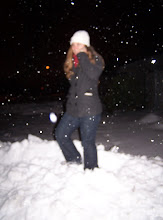
In his recent blog about Bruce Horner's "Students, Authorship, and The Work of Composition," Josh explains precisely (well, almost precisely) my sentiments about grading. As a students who once identified her worth by GPA, I can laugh at my new stance as Freshmen Composition instructor. I no longer think grades are the best way to determine what a student has learned or accomplished in any given class. Forget for a moment that grades (no matter how objective or standard you may think your criteria or rubric may) are ultimately subjective. They are also, as Josh puts it, a "a form of punishment and reward." But I wonder exactly what an F (or punishment) really accomplishes? Does it truly make the student recognize the need to write more than one draft of a paper? Does it encourage them to do "better" next time? Or does it defeat them?
Today, the last day I met with my students before they turn in final portfolios, my students asked me what grade they needed to make on their portfolios to make an (fill in the blank). This seems completely counterproductive. I don't care what grade they make on the portfolio. That's not the point. The point is for them to learn, not make a grade. Personally, I would be satisfied to see that they had learned one thing they can apply to later writing projects. If they learn how to cite, great! If they learn to recognize audience, fabulous! I would like to see that they are thinking differently, taking risks with their writing, and gaining agency when they write. How do I grade those things?
I don't claim to have the answer to the grading issue. I'm not sure how to work around it or without it to be honest. Especially within a system that requires and feeds off such grading scales. But I do wonder exactly what we're teaching students. I know, this is coming from someone who was devastated when she made a grade less than A for the first time. But, then again, I prove my own point.
